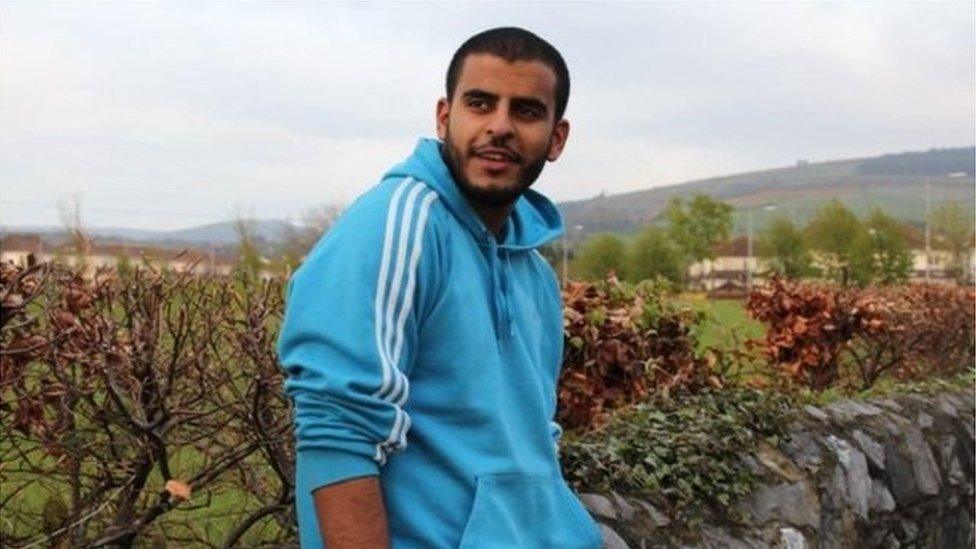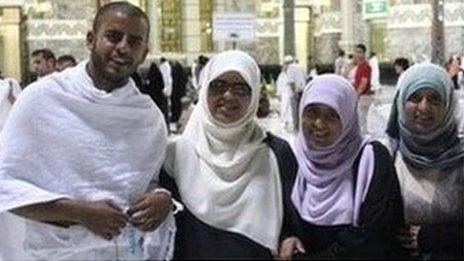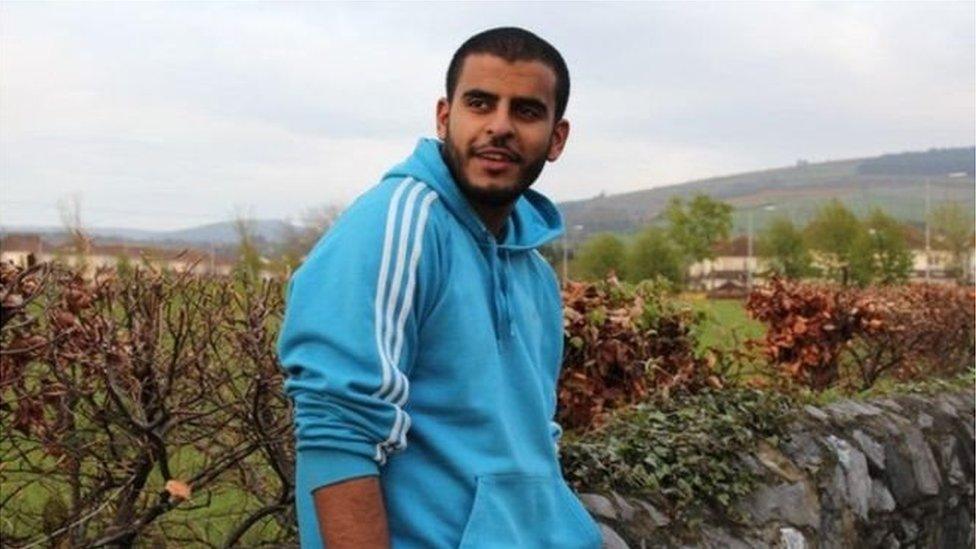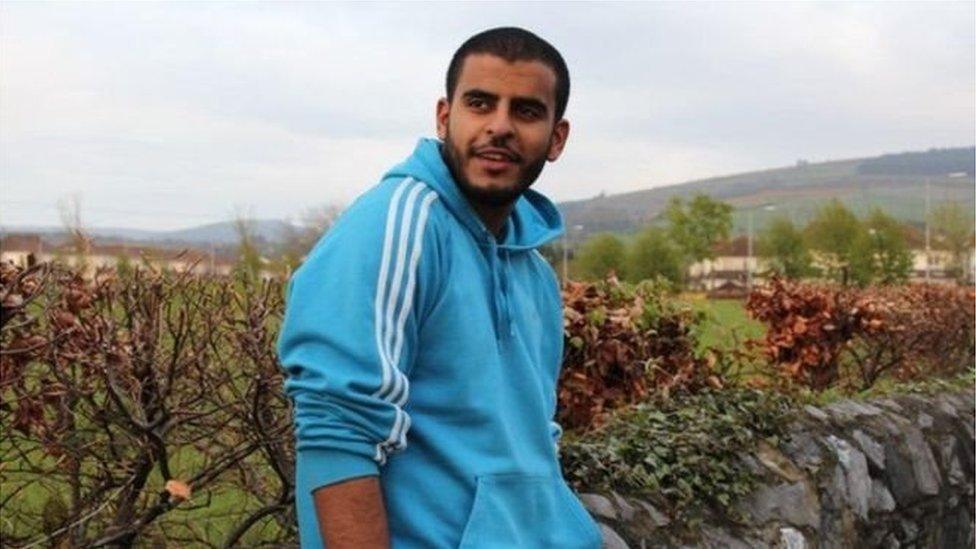Ibrahim Halawa's family call for legal action against Egypt
- Published

Ibrahim Halawa was 17 when he was imprisoned in 2013
The family of an Irishman who has been imprisoned without trial in Egypt since 2013 has called on the Irish government to take international legal action.
Ibrahim Halawa, now 21, was 17 when he was arrested with three of his sisters during a siege at a Cairo mosque.
He has been on hunger strike and has become so weak that jail staff used a wheelchair to bring him to see his relatives last week, his lawyer said.
On Wednesday, his trial was adjourned for the 20th time in almost four years.
In a statement after Wednesday's hearing, his sister, Somaia Halawa, said: "The sad reality is my brother is dying in an Egyptian prison, facing a mass trial, which at this rate will take over 10 years.
"Given Ibrahim's current mental and physical state we don't believe he will be strong enough to survive that delay."
She added: "The flawed trial process and conditions to which Ibrahim has been detained can no longer be accepted."
'Disturbed'
The family has called on the Irish government to begin legal proceedings against the Egyptian state at the International Court of Justice.
Mr Halawa, who was born and raised in Dublin, is the son of the most senior Muslim cleric in the Republic of Ireland.
Before the latest hearing, Taoiseach (Irish Prime Minister) Enda Kenny said he was "disturbed" by reports that Mr Halawa is in a wheelchair and wanted his health to be assessed "from an Irish medical point of view".
On Sunday, Sinn Féin MEP Lynn Boylan said that after more than three years in custody, the prisoner's spirit had finally been "broken".
Speaking to Irish broadcaster, RTÉ, she said he was being "kept alive" with glucose injections.
Mr Halawa's Belfast-based solicitor, Darragh Mackin, said on Wednesday: "It is inarguably clear that the current trial process does not meet the standards required by international law."
His firm, Kevin Winters Law, intends to lodge a legal opinion with the Irish government within days on how the claim should be lodged.
'Interference'
The trial has been adjourned until 5 April.
For several years, Mr Halawa faced the death penalty if he was found guilty, but in January, President Sisi's told a delegation of Irish politicians he would offer a pardon Mr Halawa once his trial is over.
The Egyptian parliament has previously objected to calls from the Irish parliament to release the Dublin man, saying the request would interfere in the affairs of the Egyptian judiciary.
He had been through a "horrific experience", said Amnesty International, spending 1,313 nights "unjustly incarcerated".
"Amnesty International continues to be gravely concerned for his mental and physical wellbeing," said the charity in a statement.
"We reiterate our call on the Egyptian authorities to drop all charges against Ibrahim and to order his immediate and unconditional release. We also urge the Irish government to continue working on his behalf and to use every means at their disposal to secure his release" .

Ibrahim Halawa was arrested along with his sisters Fatima, Omaima and Somaia
Family arrested
At the time of their arrests, the Halawas were on family holiday in Egypt.
Their trip coincided with violent anti-government protests in Cairo, staged in support of the ousted President Mohammed Morsi.
The family were arrested, along with many others, when Egyptian security forces stormed the Al-Fath mosque in August 2013.
Mr Halawa's three sisters were released after about three months and were allowed to return home to Dublin, but he has remained in jail.
- Published17 January 2017

- Published20 March 2017
